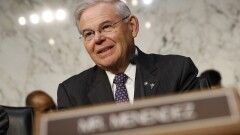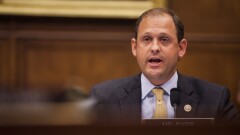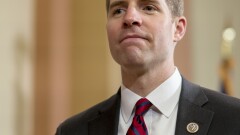The months of political ads, debates and nonstop polling were finally replaced by actual voting on Tuesday.
The outcomes in the 2018 midterm elections are sure to have implications for financial services policy. The Democrats succeeded in retaking the House, in what is likely to be a blow to the Trump administration, but Republicans held onto the Senate, even picking up a few seats.
Following is a spotlight on key races for financial institutions, and their results:

















